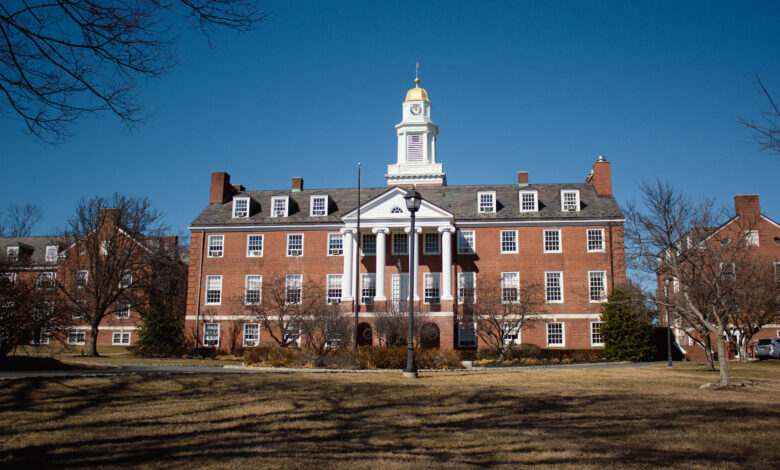
Rider sues its former law firm as town of Princeton acquires WCC campus
This story was updated on April 8 at 9:27 p.m.
By Grace Bertrand
Despite the Municipality of Princeton officially acquiring Westminster Choir College’s embattled Princeton campus for $42 million on April 1, legal hurdles surrounding the property will likely continue as Rider sued the law firm that helped Rider acquire WCC in 1992, for “legal malpractice over its handling of negotiations around the property,” The Rider News learned on April 3.
According to the lawsuit filed in Mercer County Superior Court on March 21 against law firm Jamieson, Moore, Peskin & Spicer, Rider believed it had full ownership of the 23-acre property and was in full control of its activities.
Rider President Gregory Dell’Omo declined comment on the lawsuit.
In a universitywide email on April 2, Dell’Omo said of Princeton’s acquisition of the land, “This step provides clear direction for the property, bringing closure to a complex and long-standing issue.”
Rider claimed that with the help of JMPS, it reached an agreement with WCC over 30 years ago, in which Rider acquired ownership of the entire school and property, when the renowned musical institution was struggling financially.
After Dell’Omo announced in 2017 that Rider was attempting to sell WCC’s Princeton campus, Princeton Theological Seminary sued Rider in 2018, claiming that if the land was not being used for religious music education, the property would go to the Seminary, according to the conditions of philanthropist Sophia Strong Taylor, who donated the property to WCC in 1935.
Rider CFO James Hartman declined comment and did not say if Rider received any compensation from Princeton’s $42 million acquisition of the campus.
External Affairs Vice President Kristine Brown declined comment on the lawsuit, stating that such details were confidential.
New Lawsuit
According to the lawsuit, Rider accused the legal firm of breaching “its duties to Rider by failing to draft and/or negotiate and implement the aforementioned agreements, and to obtain court approval” to possess the land title free of any future legal claims by the Seminary.
Rider claims the loss of the property is a direct result of JMPS’s “violation and malpractice of the standard of care” that they had expected.
Rider’s Legal Affairs Vice President Mark Solomon declined comment on the lawsuit, as it is still pending.
Rider is asking to receive back the loss of the value of the property, in addition to all legal fees and expenses it has paid and the sum of money disbursed by the university while it believed it was the owner of the land, according to the lawsuit.
Westminster’s future
The Westminster Conservatory of Music, a community music school, will continue operating on the Princeton property through June 17. The universitywide email from Dell’Omo said the future of the Conservatory will be announced later.
After Westminster Choir College initially moved to Rider in 2021, they anticipated being in a limbo-like state for an extended period of time. What they did not expect was having to completely say goodbye to their former home in Princeton.
“As this process moves ahead, our focus remains on Rider’s future — ensuring the continued success of our students, faculty and staff,” Dell’Omo wrote. “We are optimistic about the opportunities that lie ahead and look forward to devoting our full attention to advancing the university’s strategic priorities.”
Junior music education major Sean Haugh expressed the nervousness his peers in the Conservatory felt about its future. However, he also explained his desire for Rider to use the property loss to better the Westminster experience at Rider.
“I hope that this change will be for the better and that the resources, time and money that was allotted to maintaining the Princeton campus while we have been away, will then get reallocated to benefiting our students on this campus,” Haugh said.
While Haugh expressed his understanding of the legal trouble surrounding Princeton’s acquisition, he feels there is a relief among the Westminster community for wrapping up this “interlude” chapter.
“We are doing good things on this campus and we are still preserving the Westminster name that has a worldwide legacy,” Haugh said. “We’re getting the support from our faculty, our students and our alumni that will be able to conclude this interlude and truly begin this new chapter of the Westminster life.”


